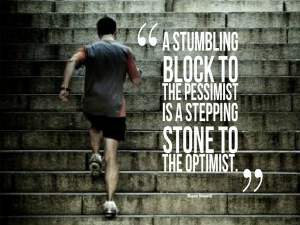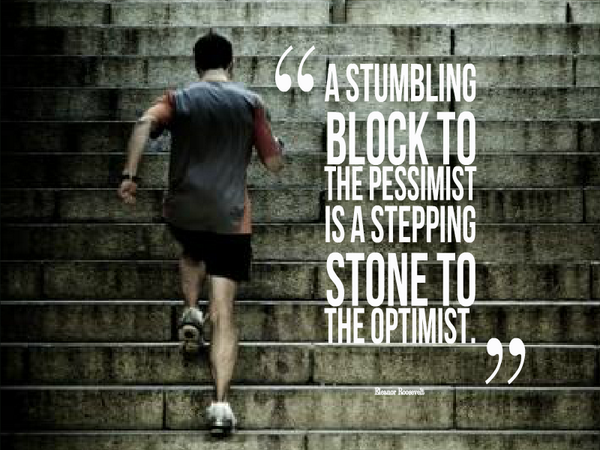
While many accounting firms are attempting to offer advisory services, many still aren’t hitting the nail on the head, according to a business coach.
Speaking to Accountants Daily, Businest managing director Rhondalynn Korolak said that accountants are still failing to understand what it is that their clients want. “There’s a common misconception or mistake in the industry where everyone thinks that we have to give dashboards and KPIs to our small business clients. Many simply misinterpret the definition of what advisory services really is (or means).
However, it has statistically been proven that at least 87 per cent of our small business clients are financially illiterate,” she said.
“That’s a huge stumbling block that I think a lot of accountants have to come to grips with. If their clients are financially illiterate, they can’t read their financial statements, so it doesn’t matter how good the graphs look or how beautiful the dashboards and KPIs are. If someone can’t read their financial statements, they can’t read those either.”
Because of this misconception, Ms Korolak said one of the biggest issues plaguing the accounting industry at the moment is that firms aren’t delivering on their clients’ needs.
“The biggest mistake that I see accounting firms making, and even just sole practitioners, is they’re trying to sell fruit to their customers, when what the clients really crave is chocolate,” Ms Korolak said. They attempt to sell their advisory services instead of focusing on helping their clients cure the pain points that keep them up at night worrying.
“Accountants are perfectly poised, they’re perfectly positioned to actually help small businesses, but we can’t do it if we keep trying to teach people accounting. The small businesses owners don’t want to learn it. They want us to take all the accounting jargon out and give them a clear roadmap with step-by-step instructions of how they’re going to fix their problems.”
Ms Korolak believes this comes down to a skill gap created by universities still teaching outdated skills and a lack of training opportunities.
“Advisory services aren’t about dashboards and it isn’t about giving people reports and all that kind of stuff. It’s about two things: getting leverage on the client and getting them to take action,” she said.
“The skills that most advisors would need to be able to pull that off and do it well are in many ways the exact opposite of skills that we were trained in school.”
This article originally appeared in the Accountants Daily on May 1, 2017
Rhondalynn Korolak is the founder of businest and the co-founder of Make The SHIFT

It’s impossible to pick up an industry publication without encountering headlines that scream “automation will eliminate most of what you do in your practice in the next decade”.
The concern is a very real and global one – it affects every industry, not just accounting. Proof in point, a 2013 research study estimates that nearly half of employment in America is at high risk of becoming automated in 10 to 20 years, with the accounting profession ranking in the top six of the most automatable occupations.
According to an Australian research paper released by the Centre for Economic Development of Australia (CEDA), “in the next decade there is a high probability that occupations such as accountants, estate agents and even economists will not exist or will be significantly depleted.”
The researchers even go so far as to hypothesise that 94 per cent of what you do right now as an accountant or bookkeeper will be replaced by machine learning and artificial intelligence by 2030.
That is only 13 years from now.
And it’s precisely why thought leaders, industry bodies, and training organisations are urging you to focus on making the shift to advisory.
While some would have you believe that talk of jobs and revenue lost is just simple fear mongering, many firms are right now seeking to move away from backward-looking compliance work (work that describes what has happened in the past and present) which is increasingly being automated by cloud accounting packages and apps. These firms are exploring new value-added advisory services that are not so easily automated and are forward-looking (helping the client to anticipate and deal with change, challenges and opportunities).
These advisory services, can help accounting and bookkeeping firms to future-proof their practices and create faster-growing, recurring, or high-margin revenue streams that make it easier to let go of compliance work.
So, it begs the question, if the future of our industry is cloudy, how many firms are already providing advisory services and what is real the outlook/potential for our industry?
A recent survey by Sageworks found that while many practitioners would like for a large share of their revenue to come from advisory services, the reality is that for many, very little revenue is actually derived from strategic, consultative or advisory work.
Participants of this survey were asked two questions:
- what percentage of firm revenue comes from advisory/consulting work? and
- what percentage would they like to come from advisory work?.
The graph showing the responses to each question are virtual mirror images of each other. While many would like to offer advisory services, most are in fact not doing so today.

Surprisingly, nearly half of respondents said less than 10 per cent of revenue comes from advisory/consulting work, and more than two-thirds put the estimate at less than 20 per cent of revenue. Only 13 per cent said 40 per cent or more of revenue is advisory/consulting.
As for the first question – how much they’d like to come from consulting/advisory work – nearly half of respondents said 40 per cent of revenue. The majority of the respondents said they’d like at least 30 per cent to come from strategic, consulting, and/or advisory.
Unfortunately, our industry and the way we educate and train new recruits is focused on technical skills, legislative changes, and GAAP processes. These establish you as an expert but they are not enough to elevate you into the realm of coaching, consulting or advisory. When you sit down to advise your clients, it’s just too easy to fall into the trap of “explaining accounting” and focusing on ‘what’, as opposed to focusing on the specific steps and strategies your client must implement to grow safely and profitably.
Compounding this, there is very little training in university, on the job, or in our industry bodies to show you how to make the shift into advisory. Contrary to popular belief, advisory is not about selling dashboards, forecasts or apps. It’s about connecting with your clients and communicating in a way that gains leverage and influences them to take action to improve their results.
Right now you are facing a cloudy and uncertain future. Doing nothing is no longer an option.
In order to evolve and remain relevant, you must acquire a new set of tools, talents, and thought processes that complement the financial acumen you already have. The skills, focus, and mindset required to excel in the fields of audit, tax, and compliance are vastly different from those required to excel in the disciplines of strategy, advisory services, and coaching/consulting. The core distinction lies in the difference between whether you are seen to be an expert, or to have expertise and insight.
The client will always pay more money for expertise and insight because their perceived value to the business is much higher.
As an accountant or bookkeeper, you are already a deep subject matter expert in all things financial. However, most of what you do for your clients is focused on the numbers that describe the past and present of the business. These compliance tasks are highly price-sensitive, the scope of work is limited, and it is almost impossible to leverage them to create influence with your client.

In order to create influence, you must move into the domains of ‘why’ and ‘how’ — these hold the key to helping your clients move forward. Coaching and advisory services are the gateways to ‘why’ and ‘how’, respectively. Figure 1 sets out the three gateways and illustrates the path from accountant/bookkeeper to coach and trusted advisor.
Both ‘why’ and ‘how’ require a future-based, big-picture focus as well as a broad, inter-disciplinary approach. While all three dimensions require deep subject matter expertise, only the trusted advisor possesses the key set of skills, focus, and mindset that leverages their specialized knowledge in a way that is impactful and influential.
*This article originally appeared in the Aug 18, 2017 edition of Public Accountant magazine.
Rhondalynn is also the co-founder of the world’s first advisory mastermind for accountants and bookkeepers Make The SHIFT










